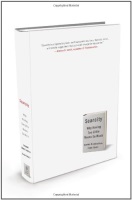Book Review: Scarcity
 Mullainathan, Sendhil and Eldar Shafir. Scarcity : why having too little means so much. Henry Holt and Company, 2013. also available as a Kindle eBook.
Mullainathan, Sendhil and Eldar Shafir. Scarcity : why having too little means so much. Henry Holt and Company, 2013. also available as a Kindle eBook.
Anyone who has been an anorexic knows that food becomes the most important thing in life. Heart and soul becomes about eating and not-eating. It is all anorexics think about, talk about, even dream about at night. The world becomes very small and boring.
Anorexia is about food deprivation — a self-imposed scarcity. In their new book titled Scarcity, faculty members Sendhil Mullainathan (Harvard, economics) and Eldar Shafir (Princeton, psychology) consider the psychological effects of scarcity on people. Defining scarcity as having less of a resource than one needs, the authors consider the effects of the lack of money, but also the lack of time and social interaction. Described in this way, scarcity effects everyone – because even the independently wealthy, who are not short of time or money, may be lonely.
The key point to Mullainathan and Shafir’s work is that scarcity is a mindset. It captures our attention and drives what we notice. It changes how we think and behave. It affects our moods and influences our choices. In times of scarcity, the brain focuses on alleviating shortages, which in turn neglects other needs and opportunities. The authors call this effect tunneling, and this narrow focus changes the way we view choices. Options with an immediate payoff are preferred to those with a higher benefit in the long run. In addition, because we are preoccupied with resolving our scarcity, our mental capacity (bandwidth) is diminished. Distracted and depleted, we are less insightful and less able to control our impulses. We make poorer decisions and become less effective in all areas of life. Among the poor, the lack of bandwidth caused by juggling loans and unpaid bills accounts for as many as 14 IQ points, enough to take someone from “normal” to “borderline deficient.” When people are unable to make good decisions for themselves and their children, scarcity becomes entrenched.
Mullainathan and Shafir show how to use the science of scarcity to improve the lives of the poor. They also show how to manage scarcity in organizations. For individuals, the authors make recommendations to prepare for tunneling and to insulate against neglect. Setting up automatic reminders brings other goals into our tunnel. Simple changes to the environment can eliminate bad options. Awareness of the variation in our personal bandwidth can help us time our activities for more successful results. This insightful book is repetitive in places, but the conversational style and many examples keep the pages turning. Recommended.
© Reviewer: Meg Trauner & Ford Library – Fuqua School of Business.
All rights reserved.